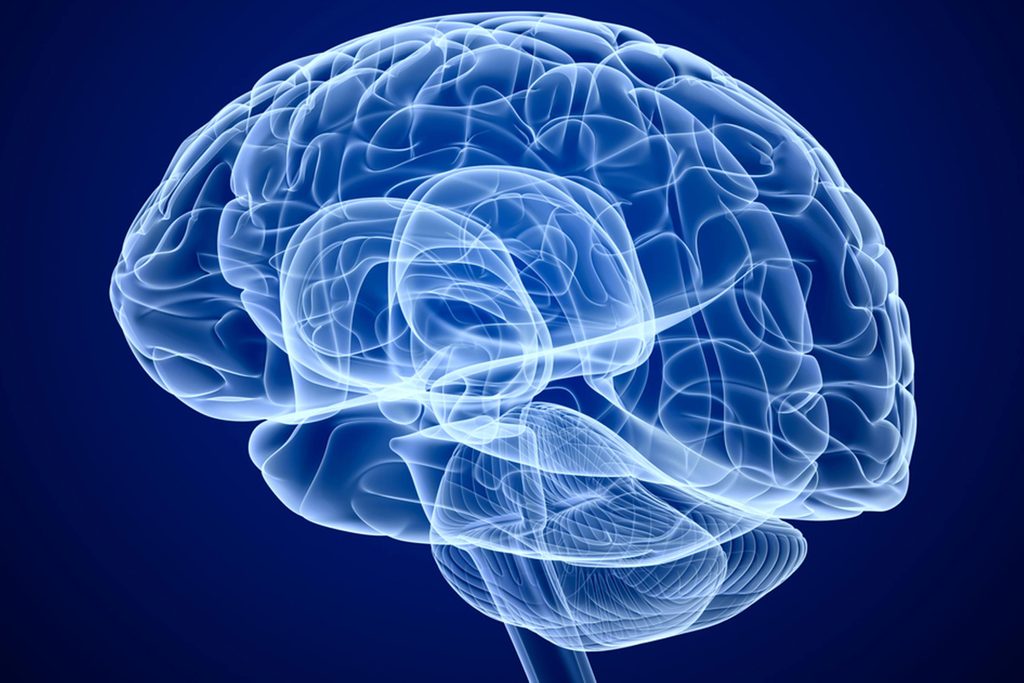
General goodness for your body
People who work out everyday get crazy benefits—good for them. But what about that very first workout, or just one session? “Overall there are several physical and mental benefits related to any type of exercise,” says Murphy Grant, MS, ATC, PES, executive chair of the National Athletic Trainers’ Association, Intercollegiate Council for Sports Medicine (ICSM), and associate athletic director for sports medicine at the University of Kansas. “Depending on the type of workout you’re doing, there can be lots of beneficial changes, including improved cardiovascular efficiency, increased bone density, higher metabolic efficiency, increased lean muscle mass and of course decreased body fat.” And most people would be surprised to know how much of that good stuff can start in just one exercise session, Grant adds.

Better body image
Having a positive feeling about your body leads to all kinds of good things—check out what these plus-size models have to say about their body confidence. Just one exercise session can have a positive impact on the way a woman sees herself, according to new 2017 research published in Psychology of Sport and Exercise. “Women, in general, have a tendency to feel negatively about their bodies,” study senior author Kathleen Martin Ginis, professor in University of British Columbia, Okanagan’s School of Health and Exercise Sciences, told ScienceDaily. “This is a concern because poor body image can have harmful implications for a woman’s psychological and physical health including increased risk for low self-esteem, depression, and for eating disorders.” In her study, Martin Ginis compared the self-perceptions of a group of women who had completed 30 minutes of aerobic exercise with a group who had instead sat and read. The study found those who had exercised had “significant improvements in their body image” over those who hadn’t exercised. This effect was linked to the women in the exercise group perceiving themselves as being stronger and thinner. “We all have those days when we don’t feel great about our bodies,” Martin Ginis said, according to ScienceDaily. “This study and our previous research shows one way to feel better, is to get going and exercise. The effects can be immediate.”

Enhanced executive function
“A single session of exercise affects the physiology of basically the entire brain,” says Wendy A. Suzuki, PhD, professor of Neural Science and Psychology in the Center for Neural Science at New York University, and principal investigator on a 2017 review in Brain Plasticity. Dr. Suzuki examined a wealth of scientific data on the range of changes one bout of exercise can achieve. For example, an enormous amount of research has shown one exercise session can enhance activity in the prefrontal cortex, a brain region that is home to executive function skills such as working memory and attention. While the reasons aren’t yet proven, science has some guesses. First, a pair of neurochemicals used by the prefrontal cortex—dopamine and brain-derived neurotrophic factor (BDNF)—both get a boost from a workout, and they’re both tied to higher functioning in the brain. Second, exercise increases the blood’s level of lactate, which is used throughout the brain—in particular by the prefrontal cortex—as energy. The third theory involves the finding that exercise detours blood away from the prefrontal cortex in order to supply the muscles working hard to run a lap or lift a weight. But after exercise, a compensatory surge of blood is rushed back to the prefrontal cortex, which could account for the hyped executive function skills observed after hitting the gym. Find out the best workout for every age.

Improved mood
Regular exercise has been linked to a better outlook. But the first time—or one time on a treadmill—can do wonders as well. Rodent studies have shown that a single bout of exercise—running on a wheel, for example—boosts the levels of three key chemicals: serotonin, dopamine and noradrenaline. “These are the exact three neurotransmitters associated with better mood that antidepressants try to increase,” says Dr. Suzuki. While it can be hard to measure improved mood in rodents, these lab findings are supported by human studies in which participants report a better mood following exercise.

Less stress
We’re all plagued by it, and everyone can use expert tips for stress management. The effects of exercise on stress is an area science is learning a lot about. Even a single session can trigger the release of cortisol, which then dampens the cortisol response that could later be triggered by other factors such as a public speaking engagement or a nerve-racking test. In addition, lessening stress can mean improving memory. Part of the reason you don’t remember things well when anxious is that stress attacks the functioning of the hippocampus, a brain area critical to memory—but a single bout of exercise can help protect against that attack. All these neuro perks—from executive function enhancement to stress reduction—add up to make exercise an especially smart thing to do around the time of a challenging mental event. “This is why I recommend that if you’re preparing for an important presentation where you have to use your attention, use your long term memory and be calm, one of the best things you can do is exercise first thing in the morning,” Dr. Suzuki explains.

Disease prevention and management
That one dose of exercise may help protect against a number of diseases. While that boost in neurotransmitters can help a person struggling with depression, all that enhanced prefrontal functioning can help people dealing with cognitive impairments, even just normal aging, says Dr. Suzuki. Here are more reasons that exercise can help you manage diabetes.

Greater creativity
Creative thinking can come in handy with problem-solving no matter where you are. Now it looks like a single bout of exercise can joing the list: A newly emerging body of evidence is suggesting exercise can promote more creativity. The hippocampus had previously been thought of as a manager of memories from the past; however, recent studies that asked people with damage to the hippocampus to imagine experiences they’d never had—which they struggled to do—suggest this brain region may also be key to envisioning the future. Therefore if a single exercise session can benefit the hippocampus, you might enjoy a resulting burst to your imagination. “Some of the studies coming out literally right now in my lab are finding that adults who are changing their exercise regime are starting to show improved performance on tasks of imagination and creativity,” Dr. Suzuki says.

Just don’t overdo it
While all these positives can come from a single gym session, a few negatives are possible for people who haven’t exercised in a while or for those with an underlying health condition. “You have to be prepared physically in order to work out,” Grant says. “If you haven’t exercised in 15 years, but you want to do some laps or head to the weight room, I wouldn’t run for 20 minutes or throw on a bunch of weights the first day. Start easy and work your way up, just to make sure your body can handle it.” It’s also a good idea to talk to your doctor before hitting the gym to make sure you’re starting your exercise regimen safely.

On the flip side, the downside of missing one workout
If you work out regularly on a consistent schedule, you’ll be able to feel the effect of skipping just one exercise session, says Grant. “Your body adapts to all the demands placed on it. If you know you usually train Monday-Wednesday-Friday, for example, your body gets used to the rhythm of those training days and the recovery days in between,” he explains. “So if something comes up and you take a training day off, when coming back to the workout next time some people feel they’ve lost something. They may feel a bit sluggish or not as strong.” Copy these 18 secrets of women who work out every day.

The more you exercise, you more you get
While one exercise session is great, committing to a long-term regimen is even better. Regular exercise not only helps your overall stress levels, it may also help stave off mental decline. “If you keep up that exercise, you’re continually building up those growth factors that strengthen the two brain areas most susceptible to aging: the prefrontal cortex and the hippocampus,” Dr. Suzuki explains. We’re finding that more regular exercise is significantly correlated with a lower chance of developing dementia at a certain age.” Grant is likewise a cheerleader for a lifestyle that includes long-term exercise. “Hopefully a person who tries a single workout has a positive outcome that makes them want to continue,” he says. “Really it’s the continuation of working out that puts you on the path to greater health overall.” Next, read up on the best workout for people who hate exercise.